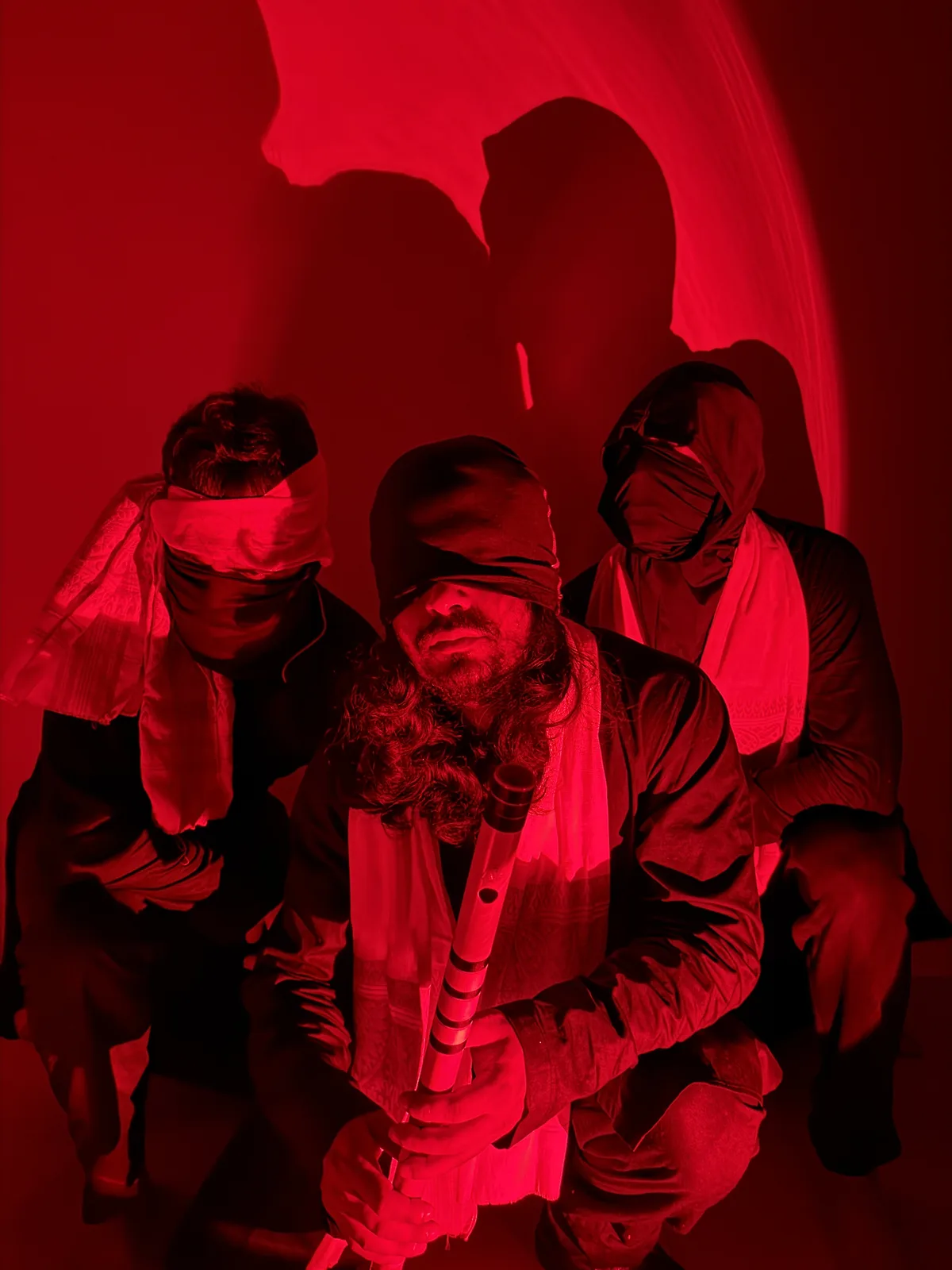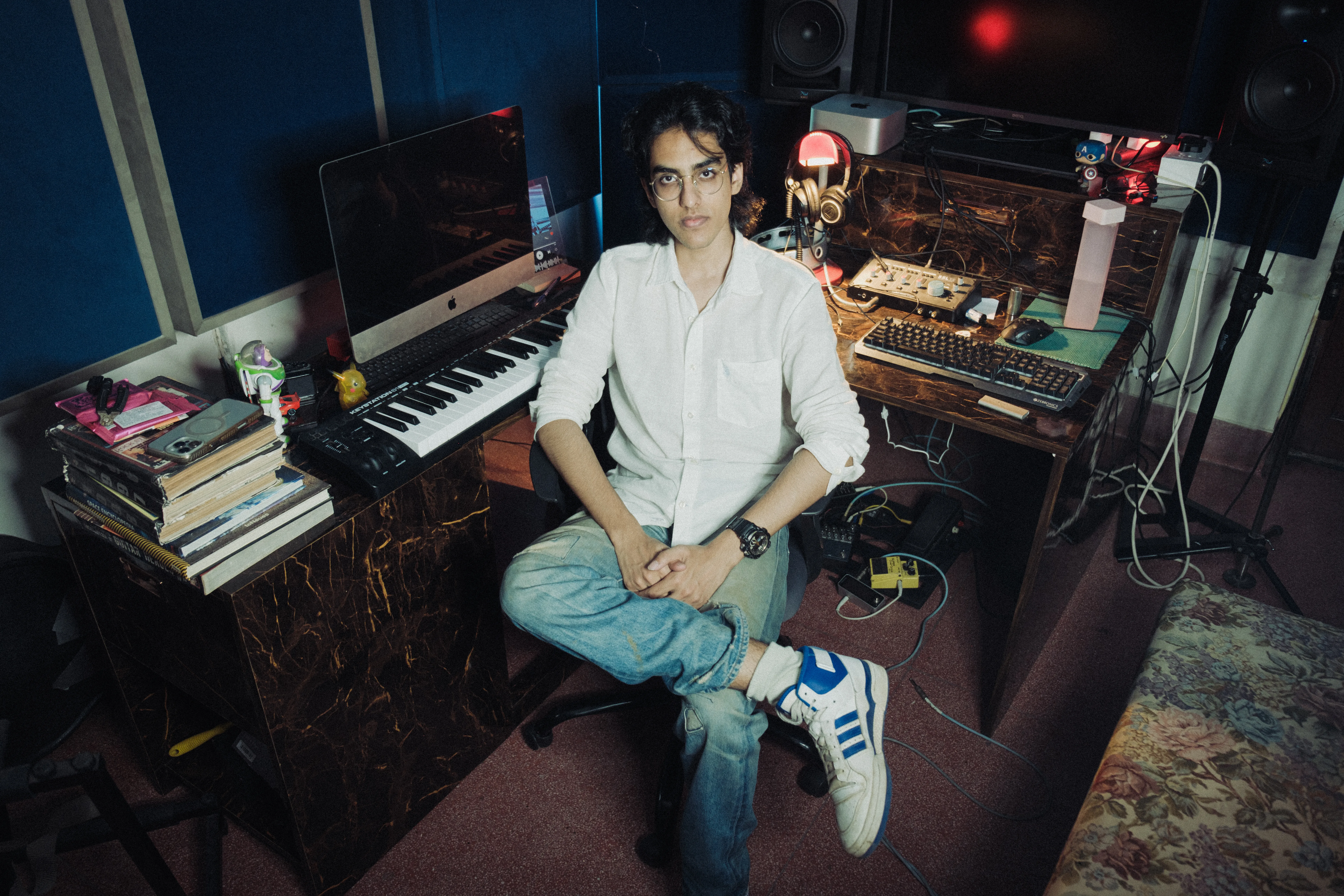For most of my brief career in music journalism, I have written about Delhi and its artists, attempting to map the soundscape of the ever-elusive city in compass-prick attempts. I have always expected to be sent astray by the same — because music, in any city, has never been linear — going up and down in something akin to a snakes-and-ladders rendering. However, recently, I have noticed the city’s gravitation to an electropop, rap-based palate in its underground/alternative spaces— and while that is interesting and welcome — I have also felt the need to find music that is not just emulating what is trending, and relying on beatporn to compensate for the lack of substantial thought put into its creation stages. It is here, at this juncture, that Jaiditya Jha’s debut EP, Shaitan ki Nazar enters.
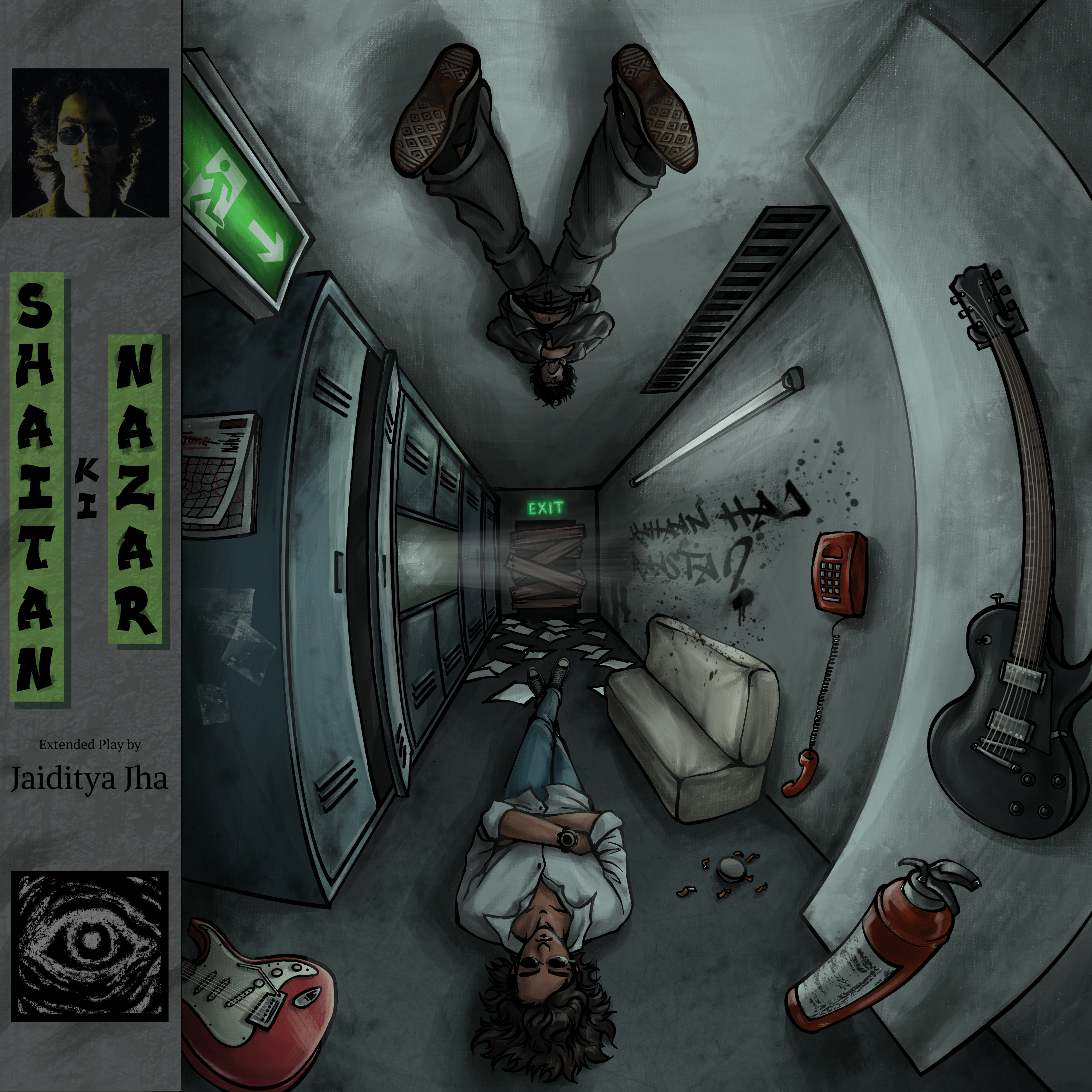
The four track, 9 minute EP is compact, concise, barely meanders and knows what it wants to achieve. Jha’s roots in rock music show — in fact, they are all over this record, unmissably augmenting the tone he is going for. This is a lyrics-driven project, and for a 9 minute project it relies very little on empty space. The songwriter-producer-composer does not delegate minimalism to his discography – and it is apparent right on from the first track. Jha layers vocal upon vocal, and it is pretty apparent that he has arranged his music in a way that it sounds like what a live band would put forward, rather than a one-person venture. On Dhua, he grapples with his addiction to cigarettes – and the varied contradictions of downing smoke conscientiously. Jha’s usage of his voice as instrument is perhaps his best creative choice and trait – especially on a song where he sings “Mera gala sookha pada hai/Yeh dhua mera naashta hai/Meri aawaz kahaan hai?”, hoarsely, in intuitive synchronization. He switches between being extremely literal, while the metaphor of a car crash looms as a partially-acknowledged threat– setting the tone for the rest of the project.
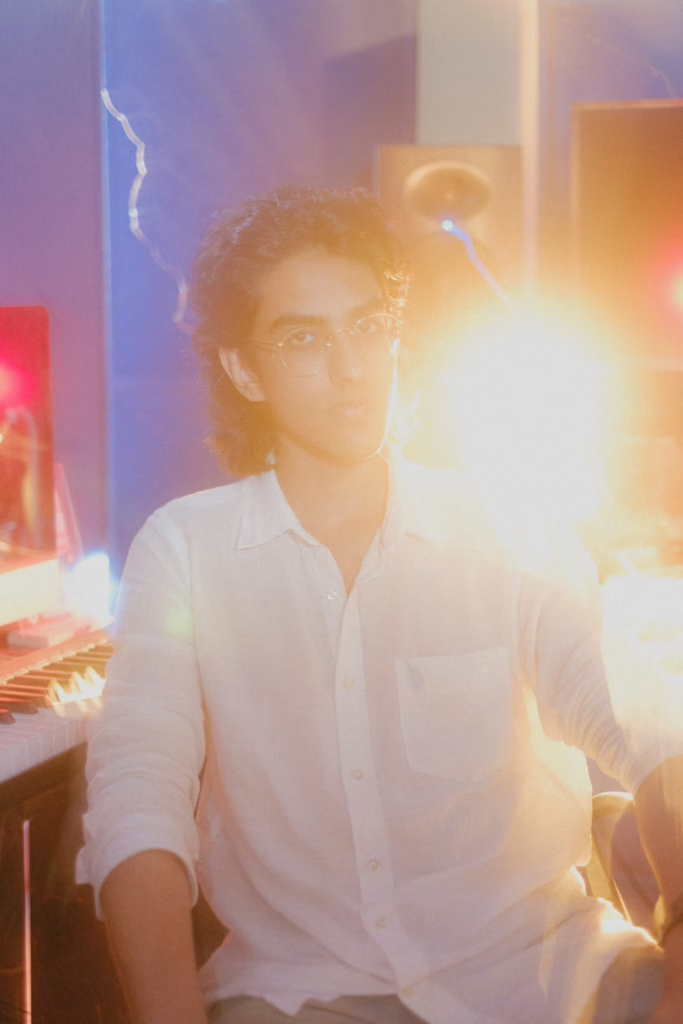
The second track, Sawaal, which also happens to be my favorite on this EP, begins with a “Chhor di maine ab mujhe withdrawals ho rahe hai” thrown into the remnant fumes of the last one, and is more introspective, fragile, and dwelling on vulnerability. There is narrative distrust, an almost dissemblement into confusion : “Rang dikhte nahi hain ab kahin / Barf saari pighalne hai lagi / Koi mujhko aawaz do / Tum sab kyun itne naaraaz ho? /Kyun gale mein phasi hai zindagi” – and it works, the 2000s rock adjacent post-coming of age sound culminates into a brief ambient soundbyte that seamlessly transitions into the instrumental, Chhota Shaitan – which slightly reminds me of Maruja’s Saoirse, and other strands of post-rock music – which augments the sort of disorientation Sawaal inches towards establishing.
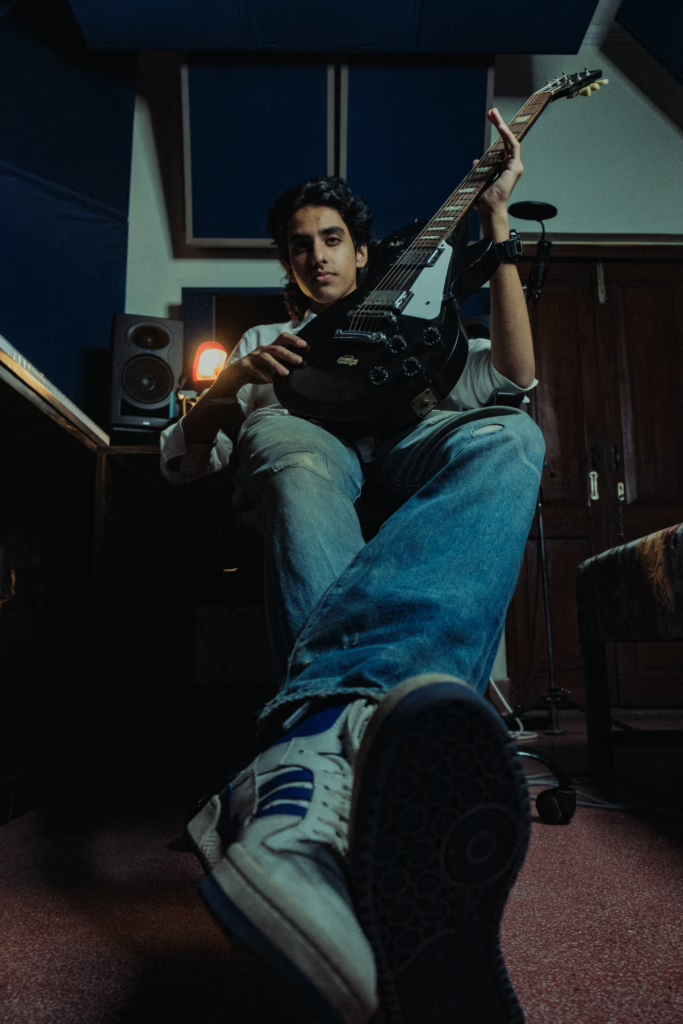
A press release from the artist states that the last track, the eponymous Shaitan Ki Nazar, “focuses on the source of this self-doubt and the feeling of being guided by a version of the self that thrives on sabotage and unhappiness.” It is a downward spiral – this EP, sonically and contextually so – going from more peppy beginnings to morose, darkened profiles of sound. Jha’s lyricism is campy, almost dramatic in its choices of figures of speech, which translate into the rubric of maximalism that he facilitates.
For a debut EP, this project is quite complete. The instruments add a vivacity to the record electropop estranges one with when heard in surplus, with Aman Suneja’s drums and Jha’s own prowess over the guitar transforming this body of work into something that is alive – and can be pictured into performance. Jaiditya Jha is not hiding behind his music, or from it. More often than not, one encounters music that one wishes could be embodied further by the artist, could have them stretch their hands further into themselves and look for whatever is honest — even if it separates them from bravado of maturity. Thankfully, this is not one of those times.











